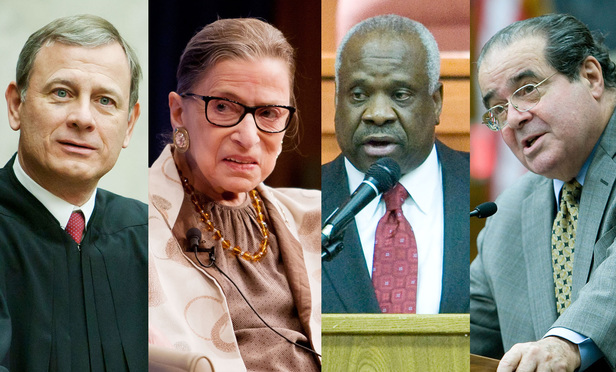Scalia’s nomination coincided with the court’s summer recess. A review of court cases that were decided from the date of his nomination through the end of 1988 didn’t show any instances in which he heard arguments while waiting for confirmation.
Scalia participated in at least three cases in which the full court considered a petition to rehear a case en banc during the three-month waiting period and issued written decisions and took part in panel decisions. After he was confirmed, he did not participate in decisions in most cases he heard before being nominated.
One notable exception was a set of three cases decided in December 1986 that involved warrantless wiretaps authorized in the late 1960s by top executive branch officials. Scalia wrote the opinions in all three cases, largely upholding the legality of the wiretaps because of their connection to national security issues. (Read Scalia’s opinions in Smith, Halperin and Ellsberg.)
Justice Clarence Thomas
Nominated: July 8, 1991 ♦ Confirmed: Oct. 15, 1991
Thomas’ nomination, like Scalia’s, occurred during the court’s summer recess. A review of court cases that were decided from the date of his nomination through the end of 1993 didn’t show any instances in which he heard arguments while waiting for confirmation.
This content has been archived. It is available through our partners, LexisNexis® and Bloomberg Law.
To view this content, please continue to their sites.
Not a Lexis Subscriber?
Subscribe Now
Not a Bloomberg Law Subscriber?
Subscribe Now
LexisNexis® and Bloomberg Law are third party online distributors of the broad collection of current and archived versions of ALM's legal news publications. LexisNexis® and Bloomberg Law customers are able to access and use ALM's content, including content from the National Law Journal, The American Lawyer, Legaltech News, The New York Law Journal, and Corporate Counsel, as well as other sources of legal information.
For questions call 1-877-256-2472 or contact us at [email protected]





